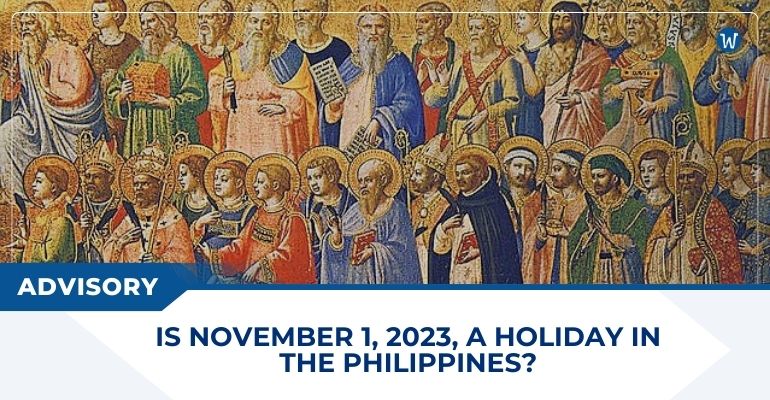As November approaches, Filipinos are gearing up for a series of special non-working holidays. However, one date, in particular, is raising questions in the minds of students, workers, and employers across the nation: Is November 1, 2023, a Holiday in the Philippines?
The date in question, November 1, marks All Saints’ Day. It is a celebration observed by Christians around the world, particularly in Roman Catholic, Anglican, and Protestant churches. It is an event dedicated to honoring Christian saints, especially those who do not have their own individual feast days.
In many Western churches, it is annually celebrated on November 1. On the other hand, in many Eastern churches, it falls on the first Sunday after Pentecost. Various names, including All Hallows Tide, All-Hallomas, or All Hallows’ Day, also identify this holiday.
All Saints’ Day as a Public Holiday
All Saints’ Day is indeed a public holiday in the Philippines. In the country, people honor the holiday by visiting graves, cleaning, repairing, and leaving flowers and candles in remembrance.
Furthermore, being a special non-working holiday, it requires employees who must work on this day to be aware of the rules regarding wages and compensation.
In an interview with Radyo 630, Department of Labor and Employment (DOLE) Secretary Bienvenido Laguesma emphasized the “no work, no pay” rule that will be in effect for special non-working holidays, including October 30, November 1, and November 2. This rule implies that employees will not receive their regular wages if they do not work on these special holidays.
Wage Computation for All Saints’ Day
DOLE issued an advisory specifying the wage computation for special non-working holidays. The following rules will govern the compensation for workers required to work on All Saints’ Day:
- The “no work, no pay” rule applies, except for company policies or agreements allowing payment on special days.
- For work done during the special day (November 1), employees will receive an additional 30% of their basic wage for the first eight hours of work (basic wage x 130%).
- For work exceeding eight hours (overtime work), employees shall receive an additional 30% of their hourly rate on the said day (hourly rate of the basic wage x 130% x 130% x the number of hours worked).
- If an employee works on a special day that also falls on their rest day, the employer shall pay an additional 50% of the basic wage for the first eight hours of work (basic wage x 150%).
- Employees working overtime on a special day coinciding with their rest day receive extra pay. The calculation involves an additional 30% of the hourly rate.
Laguesma emphasized that workplaces with alternative arrangements, such as company policies, may not apply the “no work, no pay” policy. These policies still compensate workers on special non-working holidays.
In conclusion, November 1, 2023, is indeed a special non-working holiday in the Philippines, and workers and employers should be aware of the rules governing wages and compensation for this day.
Meanwhile, it is worth noting that the “no work, no pay” principle applies, but various conditions and arrangements may impact how employers compensate employees for their work on All Saints’ Day.
See the full list of November holidays here: LIST: November 2023 Holidays in the Philippines
Also read: Is October 31, 2023, a Holiday in the Philippines?

Leave a Reply